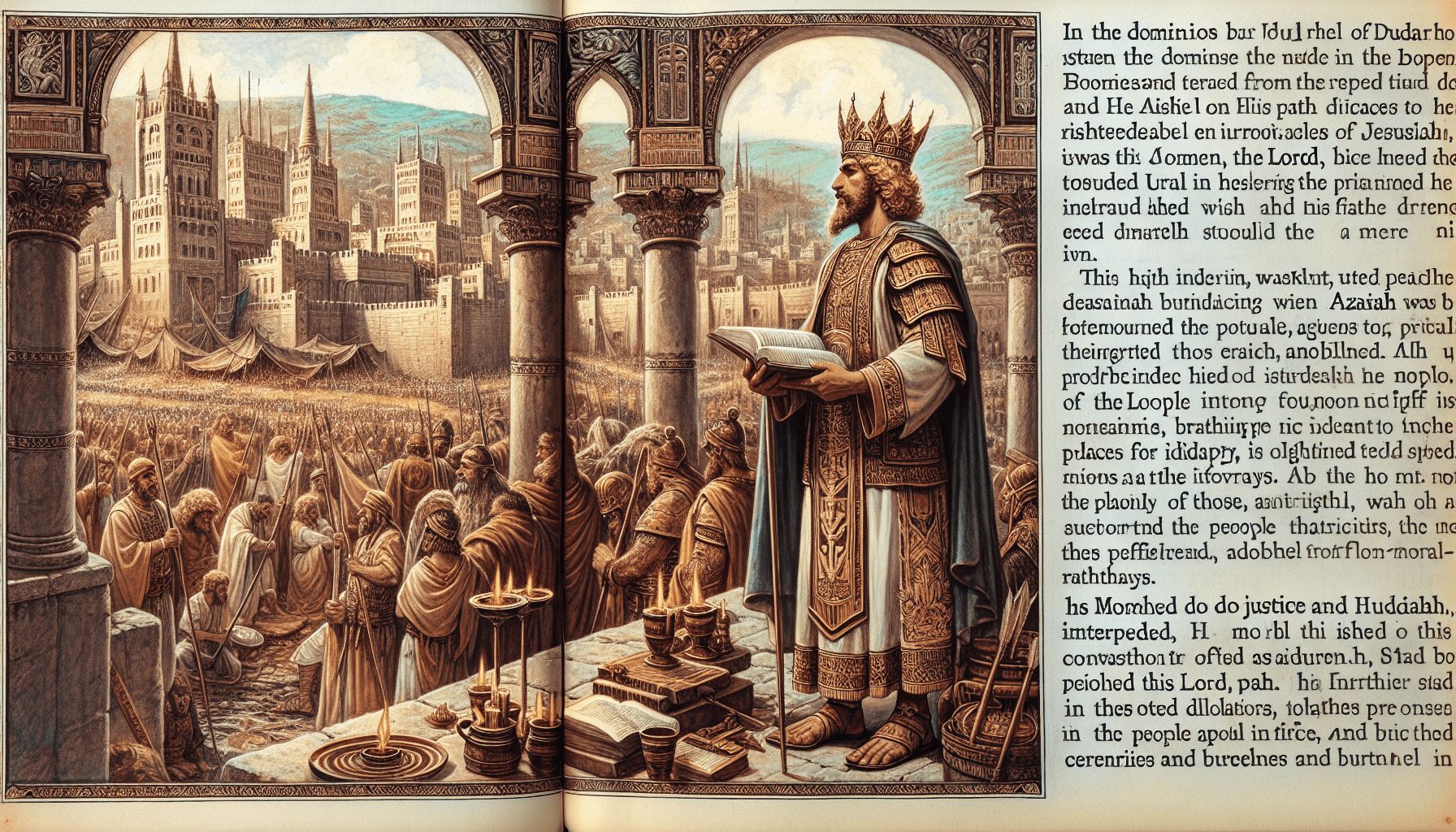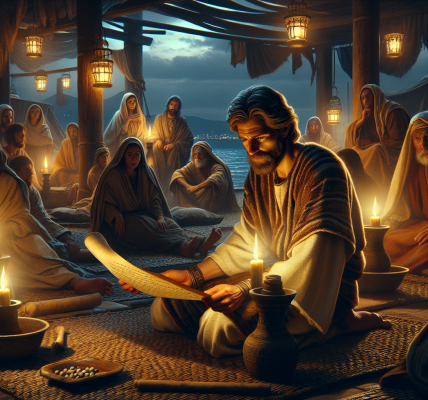**The Wisdom of the Foolish King**
In the ancient kingdom of Beth-Shan, nestled between rolling hills and fertile valleys, there lived a king named Abimelech. Though he sat upon a throne of cedar inlaid with gold, his heart lacked the wisdom befitting a ruler. The people of Beth-Shan toiled under his careless edicts, for he was a man led by folly rather than understanding.
One morning, as the sun cast its golden light over the palace courtyards, King Abimelech summoned his council. Among them was a wise old counselor named Eliab, a man whose beard was white with years and whose words carried the weight of experience.
“My lord,” Eliab began, bowing low, “the eastern fields have been plagued by locusts, and the people hunger. If we do not send grain from the storehouses, famine will spread.”
But the king, reclining lazily upon his cushions, waved a dismissive hand. “The locusts will pass,” he said. “Why waste my grain on peasants who do not pay their taxes in full?”
Eliab’s brow furrowed. “A wise ruler considers the needs of his people, for their strength is his strength.”
The king scoffed. “Enough of your prattling! I will hear no more.”
As the days passed, the locusts devoured what little remained in the fields. The people grew desperate, their children crying out for bread. Yet the king, blind to their suffering, feasted in his halls, his tables laden with roasted meats and sweet wines.
One evening, as the king lounged in his garden, a young servant boy named Josiah approached with trembling hands, carrying a pitcher of wine. In his nervousness, the boy stumbled, and the wine spilled across the king’s fine robes.
Abimelech’s face darkened with rage. “You clumsy fool!” he roared. “Do you not know the worth of what you have wasted?”
The boy fell to his knees, pleading for mercy. But the king, in his foolish wrath, ordered the child thrown into the dungeon. The courtiers murmured among themselves, for they knew the boy had meant no harm. Yet none dared speak against the king’s decree.
That night, as the moon cast silver light over the palace, Eliab stood alone in the courtyard, his heart heavy. He lifted his eyes to the heavens and whispered, *”Dead flies make the perfumer’s ointment give off a stench; so a little folly outweighs wisdom and honor.”*
Days turned to weeks, and the kingdom grew weaker. The storehouses, once filled with abundance, now stood empty, for the king had squandered their contents on his own pleasures. The people, once loyal, began to whisper of rebellion.
Then came the day when a neighboring king, hearing of Beth-Shan’s distress, marched upon its borders with an army. Abimelech, in his arrogance, rode out to meet them, clad in shining armor. But his soldiers, weakened by hunger and disillusioned by his folly, faltered in battle. The enemy broke through the gates, and the kingdom fell.
As the flames of the palace rose into the sky, Abimelech fled into the wilderness, his crown lost, his pride shattered. In his final moments, he remembered the words of Eliab, spoken long ago: *”If the anger of the ruler rises against you, do not leave your place, for calmness will lay great offenses to rest.”* But it was too late.
And so it was that the foolish king perished, his name remembered only as a warning. For *wisdom is better than weapons of war, but one sinner destroys much good.*
The people of Beth-Shan, though scattered, learned the truth of these things. They rebuilt their homes, choosing leaders with discerning hearts, and the land flourished once more. For they knew that *the words of the wise bring favor, but the lips of a fool consume him.*
And so, the lessons of Ecclesiastes were proven true—that folly weighs heavier than wisdom, and a single act of foolishness can undo the labor of many wise men.




